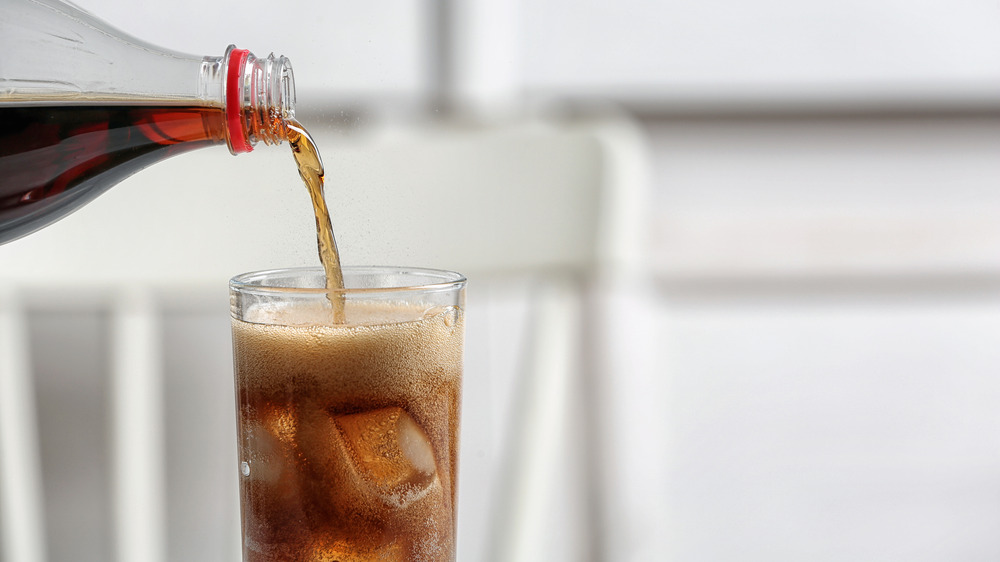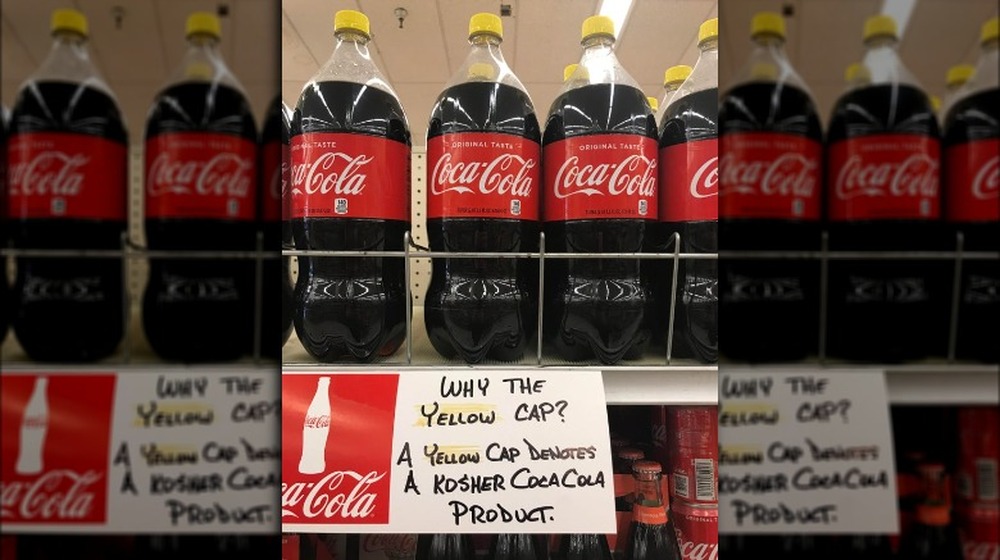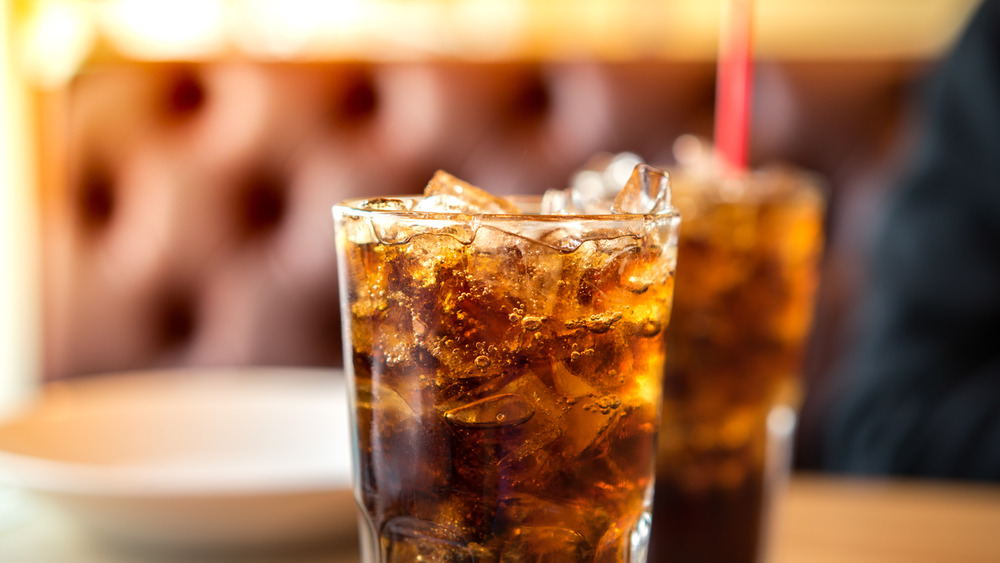Here's What The Yellow Caps On Soda Bottles Really Mean
Nowadays, companies are taking note of people's dietary preferences and limitations in an effort to satisfy more palates (and maintain market share). Whereas several years ago you couldn't really find many vegan or vegetarian products, today you can find treasure troves of items in supermarket aisles across the country. Whether you are vegan, vegetarian, or adhering to the guidelines of a religious event like Passover, finding ways to enjoy foods that you normally wouldn't be able to eat is a major plus.
For Jews, Passover is a time of reflection where they must also refrain from eating things that are considered leavened foods, per The Kitchn. Because of this, you'll find that the Coca-Cola bottles at your local grocer may be sporting a new look leading up to Passover. The popular soda brand will be releasing a limited-edition version of Coca-Cola that falls in line with the guidelines that Jews follow throughout Passover.
For context, according to an Insider report, during the holiday, Jews must not eat things like barley, rye, oats, wheat, or spelt – all classified as leavened foods. So what exactly are leavened foods? According to SFGate, foods that utilize ingredients like yeast, baking soda, and baking powder to help with a "rising" effect need to be avoided. But the outlet notes that things like egg whites, yeast extract, brewers yeast, and cream of tartar can be used as ideal substitutes as they contain no leavening agents within them.
Coca-Cola has a "Kosher for Passover" version of its soda
About three-quarters of Jews have Ashkenazi heritage, per Insider, so they have additional dietary restrictions. They must refrain from consuming legumes and grains like corn. Right now you might be thinking to yourself, "But corn is a vegetable. How can it be a grain?" But it turns out that corn can be either a vegetable a grain depending on what form it's in. According to Healthline, when corn is on the cob, the whole unit is considered a vegetable. However, corn kernels themselves are regarded as a whole grain. That becomes a problem due to the high fructose corn syrup normally used to make Coke. High fructose corn syrup is made from cornstarch, per Unlock Food. As detailed by Spoon University, making cornstarch involves softening and separating corn kernels. So what makes the yellow-capped version of Coca-Cola acceptable for Passover, exactly?
The Passover-friendly version of Coca-Cola was released to the public in 1935, thanks to Rabbi Tobias Geffen. Geffen, who served at Atlanta's Congregation Shearith Israel for 60 years, worked alongside the company to release a version of the soda that Jews would be able to enjoy during Passover. According to Science History, Rabbi Geffen was essentially chosen by the local Atlanta rabbis to oversee the entire process on behalf of the Jewish community. Through his diligent investigation, Geffen found that under kosher law, the glycerin found within Coke (used as a flavor extender) could not be consumed during Passover.
People can thank Rabbi Geffen for kosher Coca-Cola
Why wasn't glycerin kosher? Science History explains that glycerin results from the soap production process and incorporates oil from such processed meats as pigs and animals that were not killed following kosher guidelines. Though glycerin only accounted for 0.01 percent of Coke's volume, Geffen decided it couldn't be included in kosher Coke. However, if glycerin was made from vegetables it would be kosher. So how did they resolve the issues with glycerin and high fructose corn syrup? They switched the glycerin source and used Coca-Cola's original recipe, which relied on cane sugar instead of high-fructose corn syrup, per Insider.
In order to keep up with the technology and advancements that have been made in the food industry, the organizations that are in charge of certifying foods as kosher began hiring chemists to verify that foods are holding up the stringent standards. Moreover, many rabbis began studying chemistry. To signify that the soda has received certification from the Orthodox Union, the caps are marked with "O-U-P." It's worth observing that this isn't the only kind of certification for foods that meet kosher guidelines. The site Kosher states that for more broadly kosher items that might not be suitable for Passover, you must look for an "OU" (normally a "U" inside a circle). An "OU-D" designates kosher dairy. Other products might have "OU-Meat," or "OU-Fish" symbols.
So, if it's made with cane sugar, what does it taste like? According to The Kitchn, Coca-Cola's kosher soda can be likened to the very popular Mexican Coca-Cola.


